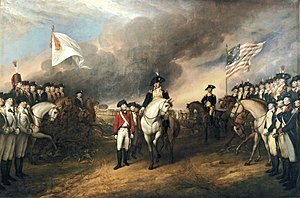valley ranch
Garden Master
- Joined
- Dec 22, 2014
- Messages
- 5,740
- Reaction score
- 5,736
- Points
- 367

THE GRANDDAUGHTER of Byron Bay's first European settler has died just shy of her 100th birthday.
Eileen Rayward has passed away at age 99 years, 11 months. She was born in Byron Shire and lived there all her life.
A mother of six, housewife, dairy farmer and plant nursery owner, she saw Byron grow from horse and buggy to traffic jams. She saw the rise and demise of the Norco Butter Factory, Anderson Meat Works, whaling, the abattoir, and Rutile sand mining
Eileen was born to Eileen Doris Tilghman (nee Wareham) on May 7, 1915 at Mullumbimby. Sadly her mother passed away seven days after giving birth to her, aged 23.
Her father, Douglas Campbell Tilghman, was not in a position to look after her and so she was taken to the family home, Koreelah, on Skinners Shoot Road, Byron Bay, by her grandparents Frederick and Ada Wareham.
Frederick had arrived in Byron Bay in September 1883 and cleared dense tropical and hardwood trees to create dairy farm on 400 acres.
He also planted a large orchard which included the first bananas, mangoes and grapes to be introduced into the district. To work the orchard, he brought to Australia 20 Indian Sikhs (ex Indian Army ) from the Punjab.

Frederick also played a significant role in the early development of Byron Bay. He helped establish the Norco Dairy Co-op and the Steamship Company.
Until she was 11, Eileen was taught at home by her aunt and then attended boarding school at St Catherine's Anglican Girls School in Stanthorpe.
She hated the strict discipline meted out by the nuns and twice she ran away from school, hiding among the many vineyards in the area until she was tracked down by men with bloodhounds.
Eileen was one of the first women in Byron Bay to get her driver's licence. In 1937, she attended the prestigious NSW Conservatorium of Music, Sydney for six months where she continued studies in piano and voice production.

The Byron Bay of Eileen's youth.Contributed
Eileen married Ray Rayward of Billinudgel in 1938. At her wedding, she wore the historically important family shawl of the United States Tilghman family, handed down to her as a direct descendant of Colonel Tench Tilghman, aide-de-comp to George Washington during the War of Independence.
Eileen and Ray had six children including their son, Peter, who was born in 1946. At age four he was struck down during the polio epidemic, lived for many months in an Iron Lung, but died in 1951.
Ada Wareham helped Eileen to care for the children until she died at age 88 in 1948.
For cooking, the wood stove had to be lit; for bathing, the chip heater had to be lit for hot water; and for washing, the copper lit, the clothes washed by hand and the wooden clothes wringer turned by hand. No refrigeration, just a Coolgardie Safe hanging on the verandah, the food kept cool by the wind blowing through a wet hessian bag.

Eileen Rayward wearing her historically important wedding shawl.

Eileen Rayward
The citation read in part: by the time the Byron Bay Red Cross was forced to close due to a lack of members, Eileen had given 82 years continuous service to the organisation, over 50 as president, probably a record for Australian Red Cross.
The Red Cross prepared a special Service Award to recognize her long service. It would have been presented to her on her 100th birthday. She also gave 25 years' service to St Vincent de Paul.
Eileen finally sold Koreelah to Anthony Pangallo and James Dawson in 2004. They readily accepted Eileen's wish that they restore the homestead to its former glory and it is now a six star rural resort.
Her family (some 80 descendants) will gather at Koreelah in Byron Bay today to remember her.
God Love Grandmother~ we love her~ you would have as well```



